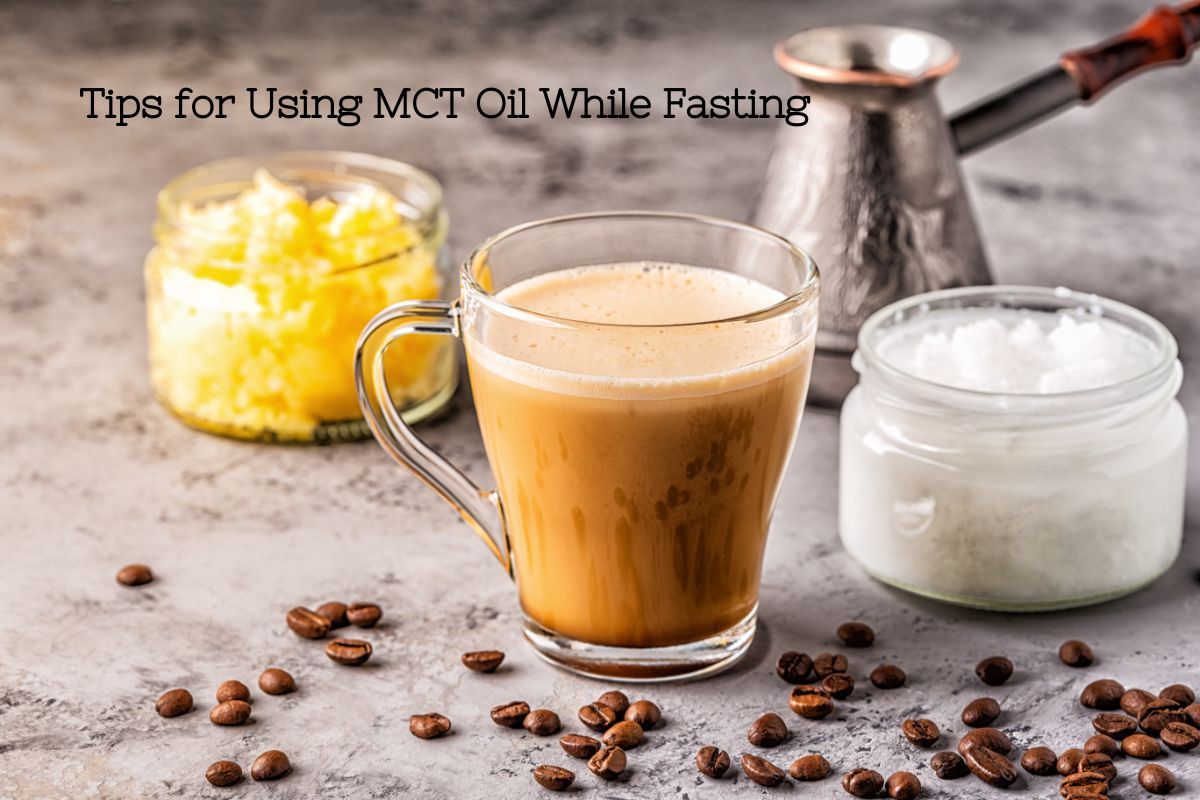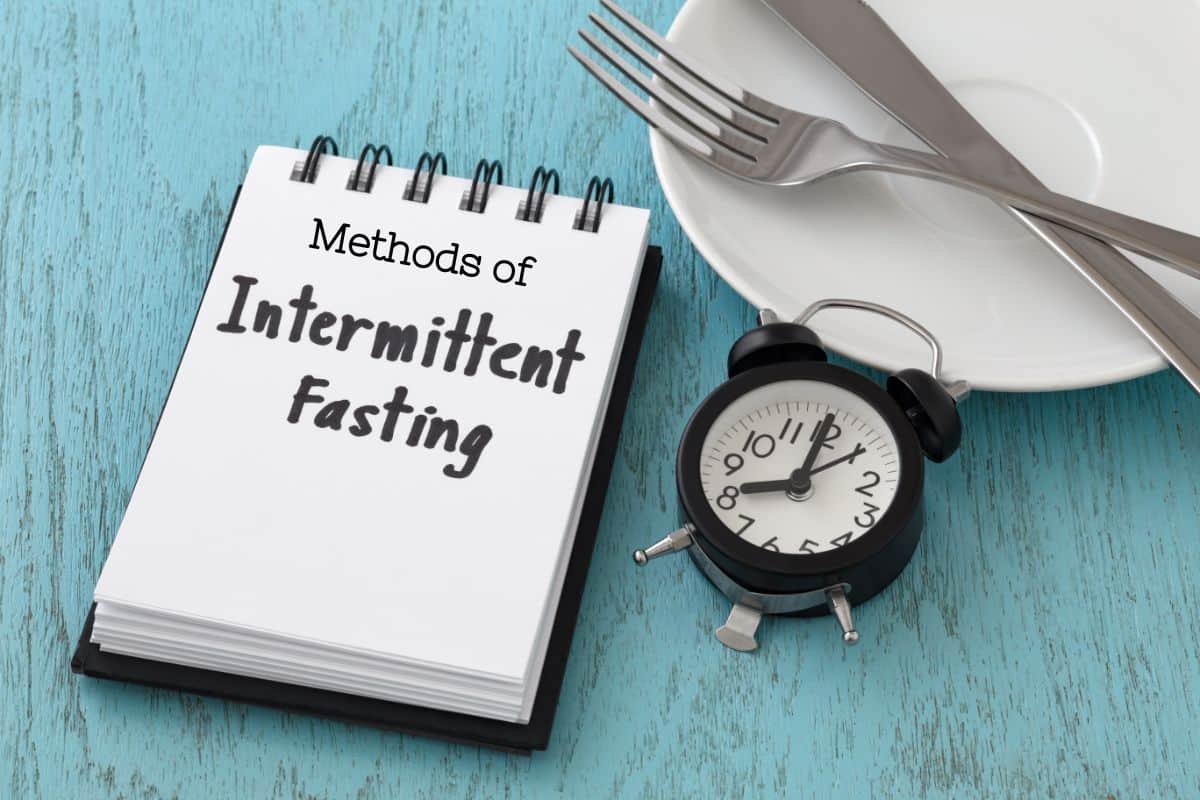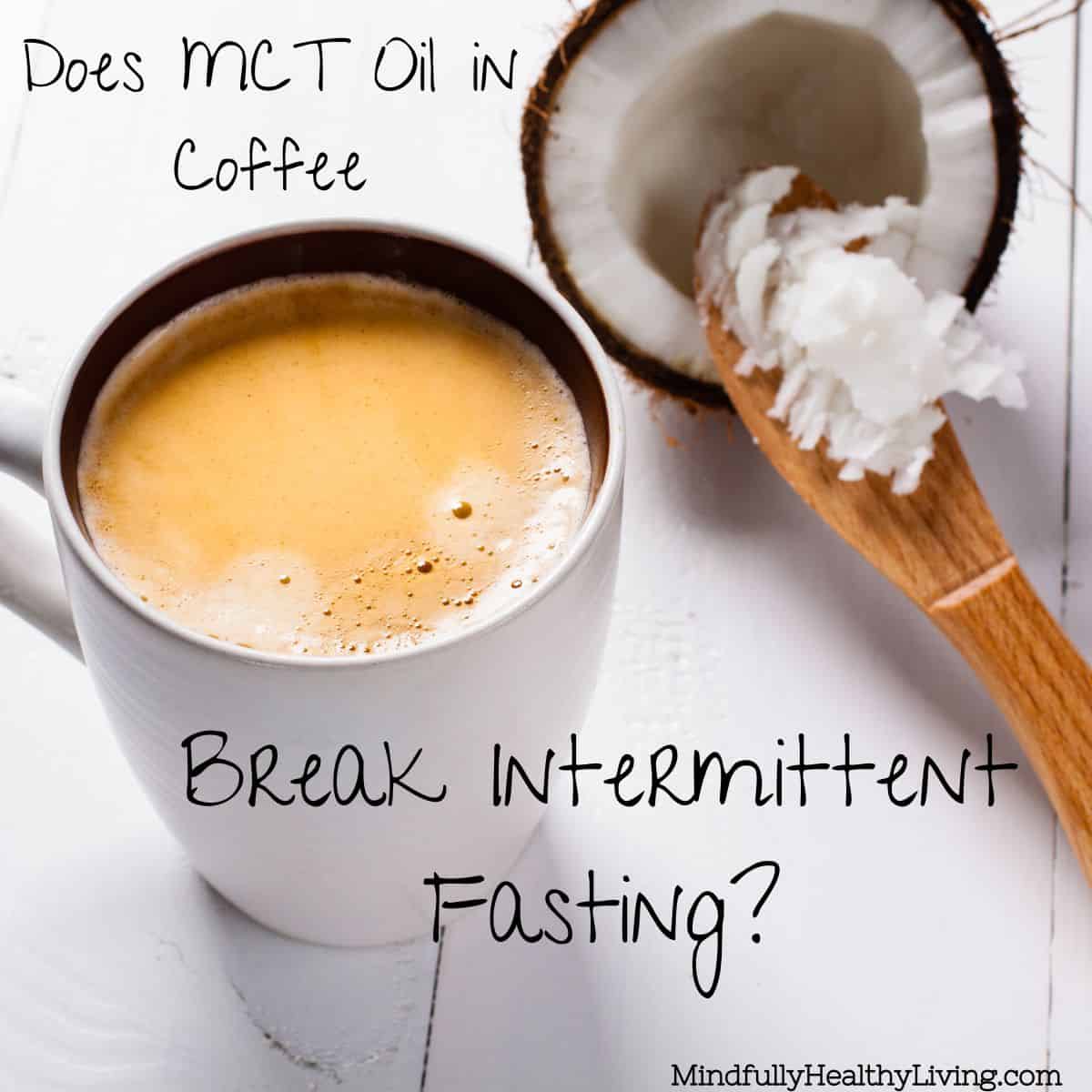With any dietary approach, questions often arise about what foods or additives might impact the efficacy of intermittent fasting. One common question that emerges frequently from my clients and the health-conscious community is, "Does MCT oil in coffee break intermittent fasting?"
The rise of MCT oil's popularity has given rise to the question of whether incorporating it into your morning coffee could inadvertently disrupt the fasting state and hinder the numerous advantages of intermittent fasting.
Jump to:
As a dedicated holistic nutrition coach, my passion lies in guiding individuals toward healthier and more balanced lifestyles.
Among the various dietary trends, intermittent fasting has gained immense popularity in recent years in the health and fitness world for its potential to support weight loss, boost metabolism, and promote overall well-being.
Recently, medium chain triglycerides (MCT) oil has surged in popularity, often being touted as a potent energy source and a potential aid for weight loss. Extracted from coconut oil or palm kernel oil, MCT oil is composed of fatty acids that are easily digestible and rapidly metabolized by the body, leading to an immediate energy boost.
Just like my article discussing almond milk in coffee during a fast, let's cover this popular query to shed light and help you make an informed decision.
The short answer is both yes and no. Technically, eating anything will break a fast. However, many believe that the benefits of MCT oil can help extend a fast to receive maximum benefits with the key being to consume in small amounts. It all depends on the type of fast and your individual goals.

Let's cover the research and evidence-based insights that can help you make informed decisions about your fasting regimen and overall well-being.
Disclaimer
This article is intended for informational purposes only. As a Holistic Nutrition Specialist, I can share general information and guidelines. However, it is important to discuss fasting and any other dietary changes for your unique situation with a qualified medical doctor who is aware of your individual history and needs.
Does MCT Oil Break a Fast?
Some proponents argue that MCT oil is "fasting-friendly" because it promotes ketosis and doesn't spike blood sugar levels. These are critical aspects of intermittent fasting.
They believe that as long as the body remains in a state of ketosis, the fasting benefits are maintained, even with the consumption of MCT oil.
On the other hand, those who adhere to a more purist approach to intermittent fasting may view MCT oil in coffee as disrupting the fasting state due to its caloric load.
The caloric content of MCT oil can vary depending on the quantity added to the coffee, and any caloric intake, no matter how small, can potentially disrupt the fasting process.
Some studies suggest that MCTs may increase ketone production and fat burning, which aligns with the goals of intermittent fasting.
However, more research is needed to understand how MCT oil consumption during fasting periods affects the body's overall fasting response and potential benefits fully.
Tips for Using MCT Oil During a Fast
As a holistic nutrition coach, my advice to individuals practicing intermittent fasting is to approach the use of MCT oil in coffee with mindfulness and self-awareness.
If you decide to incorporate MCT oil into your coffee during fasting periods, consider factors such as your overall caloric intake, individual goals, and the specific intermittent fasting plan you follow.

Also, be sure to use small doses of medium-chain triglyceride oil in your coffee during fasting periods. 1-2 teaspoons in your cup of coffee is a sufficient amount to boost energy without adding too many calories that could potentially disrupt the fast.
It might also be helpful to incorporate it in the earlier or later points of the fasted state, if possible.
It is also imperative to use high-quality MCT oil in its purest form to obtain the most additional health benefits that this popular supplement has to offer.
 Viva Naturals Organic MCT O...Shop on Amazon
Viva Naturals Organic MCT O...Shop on Amazon
Additionally, as tempting as it is, it is a good idea to avoid using artificial sweeteners.
These chemical additives cause gut disturbances and are linked to several forms of cancer and other chronic diseases.
There are other natural sugar alternatives like stevia and monk fruit that can help sweeten things without disrupting your overall health and wellness goals.
What is Intermittent Fasting?
Intermittent fasting involves cycles of eating and fasting periods, with various methods such as the 16/8, 5:2, or alternate-day fasting gaining traction among proponents.
During a fasting period, the body undergoes significant metabolic changes, transitioning into a state of ketosis where it burns stored fat for energy.
Intermittent fasting is not a new concept; it has been practiced by various cultures and religions for centuries.
In recent years, it has gained significant attention in the health and wellness community due to its potential benefits for weight management, metabolic health, and overall well-being.
But what exactly is intermittent fasting, and how does it work?
At its core, intermittent fasting is an eating pattern that alternates between periods of eating and a fasting routine.
Unlike traditional diets that focus on specific food restrictions, intermittent fasting is more concerned with when you eat rather than what you eat. It doesn't prescribe particular foods but rather emphasizes the timing of your meals.
Methods of Intermittent Fasting
There are several popular methods of intermittent fasting, with the most common ones being:

16/8 Method: Also known as the Leangains protocol, this method involves fasting for 16 hours a day and the remaining is restricted to an 8-hour eating window. For example, one might eat for a period of time between 12:00 PM and 8:00 PM and fast from 8:00 PM to 12:00 PM the following day.
5:2 Method: With this approach, individuals consume their usual diet five days a week and restrict calorie intake to about 500-600 calories on the remaining two non-consecutive days.
Alternate-Day Fasting: As the name suggests, this method involves alternating between fasting days and regular eating days. On fasting days, calorie intake is significantly reduced or eliminated.
Eat-Stop-Eat: This method involves fasting for a full 24 hours once or twice a week, consuming zero calories during the fasting period. During the regular eating period, caloric intake is resumed normally. This is more like a traditional fast performed for only 24 hours and intermittently.
Intermittent fasting is believed to work by tapping into the body's natural mechanisms for energy utilization.
During a fasting window, when food is not readily available, the body's insulin levels drop, prompting the release of stored energy in the form of glucose and fat stores.
This metabolic switch leads to ketosis, a state in which the body primarily relies on fat burning as its primary energy source.
Benefits of Fasting
The benefits of fasting extend beyond weight management and body fat loss.
Research suggests that intermittent fasting may improve insulin sensitivity, promote cellular repair processes, improve energy levels, and enhance brain health by increasing the production of brain-derived neurotrophic factor (BDNF), a protein vital for cognitive function and mental clarity.
However, it's essential to note that intermittent fasting is not suitable for everyone. Pregnant or breastfeeding individuals, individuals with a history of disordered eating, or those with certain medical conditions should approach intermittent fasting with caution and seek guidance from healthcare professionals or nutrition experts.
My approach to intermittent fasting always emphasizes the importance of individualization.
What works for one person may not be suitable for another, and it's crucial to consider factors like lifestyle, medical history, and personal goals when determining the most suitable fasting method.
Before trying intermittent fasting, consult with a healthcare professional or a qualified nutrition coach who can help ensure it is safe and appropriate for your specific needs.
Now that we have a solid understanding of what intermittent fasting entails, let's delve into the role of MCT oil in coffee and its potential impact on this unique dietary practice.
 AS-IS Simply Full Spectrum ...Shop on Amazon
AS-IS Simply Full Spectrum ...Shop on Amazon
Role of MCT Oil in Coffee
MCT oil supplement has emerged as a popular addition to coffee, creating a trendy beverage known as "bulletproof coffee" or "keto coffee" and is often used as a part of a keto diet.
The idea behind adding MCT oil to black coffee is to enhance energy levels, promote mental clarity, and potentially support weight loss. But how does this combination align with the principles of intermittent fasting?

Medium-chain triglycerides (MCTs) are a type of saturated fatty acid found in coconut oil, palm kernel oil, and some dairy products.
Unlike long-chain triglycerides (LCTs), MCTs are more rapidly absorbed and metabolized by the body, bypassing the typical digestive system process and going straight to the liver, where they are converted into ketones - a source of energy for the brain and muscles.
This type of fat more readily crosses the blood-brain barrier which helps obtain the potential health benefits more readily.
Additionally, caprylic acid and lauric acid, both found in MCT oil, are considered healthy fats that can support ketone production and provide a quick source of energy for the body during intermittent fasting.
For those following a ketogenic diet, MCT oil in coffee can be a valuable addition, as it helps maintain a state of ketosis and provides a quick energy boost without affecting insulin levels significantly.
However, when it comes to intermittent fasting, the role of MCT oil is more complex.
While MCT oil itself contains calories, the primary concern regarding its inclusion in coffee during fasting periods is the potential to break the fast due to the caloric content.
Intermittent fasting aims to trigger a metabolic shift towards burning stored fat for energy, which may be hindered if caloric intake is introduced, even from a relatively quick source like MCT oil.
 Natural Force Organic MCT O...Shop on Amazon
Natural Force Organic MCT O...Shop on Amazon
Check out our web story here!
Final Thoughts
Ultimately, the most crucial aspect of intermittent fasting is achieving a balance that works for your body and lifestyle.
If you find that MCT oil in coffee enhances your fasting experience, curbs your hunger pangs promotes satiety, and aligns with your wellness goals, it may be a suitable addition for you.
Conversely, if you prefer a purist approach to fasting, you may choose to abstain from MCT oil during fasting periods.
In the end, the journey toward optimal health and well-being is highly personal. As a holistic nutrition coach, my role is to empower you with knowledge and guide you in making informed decisions that resonate with your body and align with your unique health objectives.
Have you tried MCT oil in your morning coffee during intermittent fasting? Share your experiences below! Don't forget to subscribe to our newsletter and follow us on social media for more holistic health tips and recipes!
Have a happy and healthy week!
Natalie







Comments
No Comments